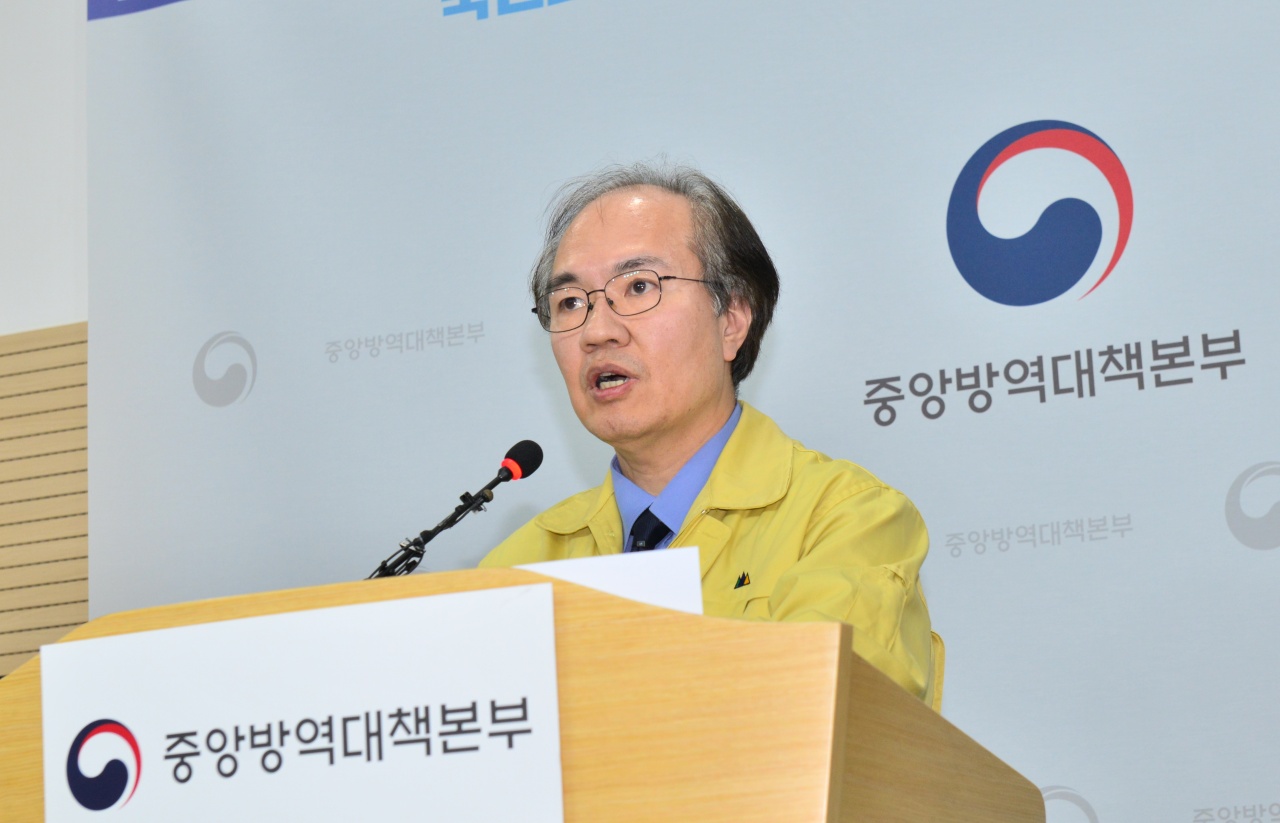KCDC warns of possible summer wave
Health authorities to issue vacation safety guidance
By Kim ArinPublished : June 18, 2020 - 10:23

Health authorities say warmer weather is unlikely to inhibit the spread of the coronavirus, warning that the next wave of infections could arrive sooner than previously anticipated as cases climb in the Greater Seoul area.
In the 24 hours ending Wednesday midnight, Korea added 59 more cases of COVID-19, the respiratory illness caused by the novel coronavirus. Of those, 51 were from local transmission and eight were linked to overseas travel.
Seoul, Gyeonggi Province and Incheon -- which constitute Greater Seoul -- reported the most number of patients at 39. The metropolitan region now accounts for 20.9 percent of the nationwide total.
Minister of Health and Welfare Park Neung-hoo said in a Thursday meeting at the Central Disaster Management Headquarters that the increase in travel during summer vacation season may incite a new spike.
“The ministries of Health and Oceans are devising COVID-19 guidance for safety at beaches,” he said.
Mass gatherings, even when outdoors, carry hazards of contagion, said Korea Centers for Disease Control and Prevention’s Deputy Director of Kwon Jun-wook in a Thursday briefing.
“Any close contact without face masks on can be a cause for transmission,” he said.
The health minister said eating at restaurants was among the riskier activities, and that a slew of recent infections had been traced to indoor dining.
“Try to maintain a distance while dining together, and refrain from sharing dishes or talking,” he said.
While health experts have estimated early on in the epidemic that the virus could potentially be seasonal, the World Health Organization said it was “a false hope” to believe that it will disappear like the flu in the summer.
“We have to assume that the virus will continue to have the capacity to spread,” said WHO Executive Director of Emergencies Program Dr. Mike Ryan.
Speaking to reporters, the Health Ministry’s Director of Public Health Policy Yoon Tae-ho said movements have increased markedly since the long weekend falling April 30 to May 5, which in turn led to renewed flare-ups.
“If efforts to stem the spread prove ineffective with the approaching vacation season, the stringent countermeasures implemented in and around Seoul may extend to the rest of the country,” he said.
Infectious disease expert Dr. Kim Woo-joo of Korea University Hospital in Guro, southern Seoul, said there was a significant chance the virus will spread from the capital to other areas where the numbers are still low as people move around more.
“Strict compliance to precautions such as mask-wearing while vacationing can reduce chances of transmission,” he said.
Kwon of the KCDC, who also heads the National Institute Health, said the health agencies would “try all means possible” to deliver coronavirus vaccines and cures.
But until then, physical distancing was the only way of keeping the disease under the medical surge capacity.
To date, 12,257 people have been infected with the coronavirus, of whom 280 have died.
By Kim Arin (arin@heraldcorp.com)








![[Graphic News] More Koreans say they plan long-distance trips this year](http://res.heraldm.com/phpwas/restmb_idxmake.php?idx=644&simg=/content/image/2024/04/17/20240417050828_0.gif&u=)
![[KH Explains] Hyundai's full hybrid edge to pay off amid slow transition to pure EVs](http://res.heraldm.com/phpwas/restmb_idxmake.php?idx=644&simg=/content/image/2024/04/18/20240418050645_0.jpg&u=20240419100350)






![[From the Scene] Monks, Buddhists hail return of remains of Buddhas](http://res.heraldm.com/phpwas/restmb_idxmake.php?idx=652&simg=/content/image/2024/04/19/20240419050617_0.jpg&u=20240419175937)

![[KH Explains] Hyundai's full hybrid edge to pay off amid slow transition to pure EVs](http://res.heraldm.com/phpwas/restmb_idxmake.php?idx=652&simg=/content/image/2024/04/18/20240418050645_0.jpg&u=20240419100350)

![[Today’s K-pop] Illit drops debut single remix](http://res.heraldm.com/phpwas/restmb_idxmake.php?idx=642&simg=/content/image/2024/04/19/20240419050612_0.jpg&u=)